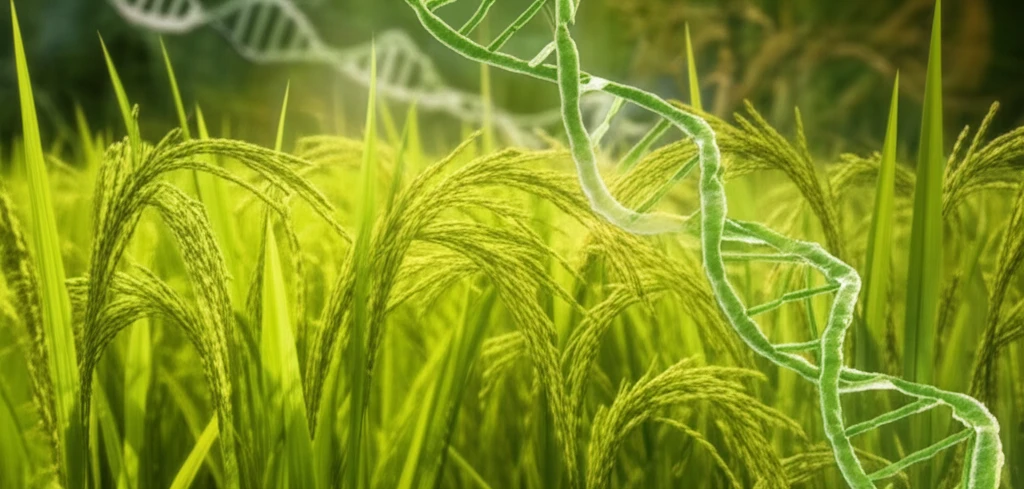
Rice Breeding Revolution: How Epigenetics Can Help Secure Our Food Future
"Unlocking the Secrets of DNA Methylation for Climate-Resilient Crops"
In an era defined by climate change and increasing demands on food production, ensuring global food security has become a critical challenge. Environmental stresses, such as drought, salinity, and nutrient deficiency, significantly impact crop yields, making it essential to explore innovative approaches to enhance plant resilience. Epigenetics, the study of heritable changes in gene expression that do not involve alterations to the DNA sequence itself, offers a promising avenue for improving crop adaptation and performance.
Epigenetic mechanisms, particularly DNA methylation, play a crucial role in regulating gene expression and influencing plant development and stress responses. While epigenetic pathways are well-characterized in model plants like Arabidopsis thaliana, recent research has focused on understanding these mechanisms in rice (Oryza sativa), a staple food crop for billions of people. Rice's relatively small genome size and fully sequenced genome make it an ideal model for studying epigenetics in monocotyledonous plants.
This article delves into the world of DNA methylation in rice, exploring its relevance to breeding climate-resilient crops. We will examine how DNA methylation patterns influence stress responses, the key regulators involved in this process, and the potential for leveraging epigenetic modifications to improve rice adaptation to a changing environment. By understanding the intricacies of DNA methylation in rice, we can unlock new strategies for enhancing crop resilience and ensuring food security for future generations.
Epigenetics: The Key to Climate-Resilient Rice?

Epigenetic modifications, such as DNA methylation, are increasingly recognized as important factors in plant adaptation to environmental stresses. DNA methylation involves the addition of a methyl group to a cytosine base in the DNA sequence, which can alter gene expression. In plants, DNA methylation occurs in three sequence contexts: CG, CHG, and CHH.
- Stress Response: DNA methylation plays a crucial role in regulating plant responses to various environmental stresses. Studies have shown that stress conditions can induce changes in DNA methylation patterns, affecting the expression of genes involved in stress tolerance.
- TEs Silencing: DNA methylation is predominantly found at transposable elements (TEs) and repeats, ensuring the maintenance of TEs silencing.
- Agricultural Traits: Beneficial roles of TEs in rice are reviewed by Song and Cao [31]. One example recently discovered in rice is the natural epiallele Epi-rav6 [22].
Looking Ahead: The Future of Epigenetics in Rice Breeding
The research on DNA methylation in rice has opened up new avenues for breeding climate-resilient crops. By understanding how epigenetic modifications influence stress responses and agronomic traits, breeders can potentially select for varieties with enhanced adaptation to changing environmental conditions.
However, many questions remain unanswered. Further research is needed to elucidate the precise mechanisms by which DNA methylation regulates gene expression in rice, the stability of epialleles across generations, and the potential for using epigenetic markers in breeding programs. Massive comparative studies of rice varieties will provide an opportunity to improve our knowledge of epigenetic regulations and also to identify new agronomically interesting epialleles.
As climate change continues to pose a threat to global food security, the insights gained from epigenetic research in rice will become increasingly valuable. By harnessing the power of epigenetics, we can develop crops that are better equipped to withstand environmental stresses and ensure a stable food supply for future generations.
